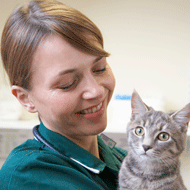BVNA invites clinical abstracts for congress 2017

Submissions are encouraged ifrom veterinary nurses in practice as well as those undertaking research as part of their academic studies.
Veterinary nurses working across the profession are being invited to submit clinical abstracts for presentation at BVNA Congress 2017.
Submissions are encouraged in the following categories from veterinary nurses in practice, as well as those undertaking research as part of their academic studies:
• Clinical review in practice: What have you been doing in practice to improve protocols or compliance? What made you undertake a review; did you complete an audit, what were your findings? How did you go about implementing change? Did you implement or enhance any SOP’s, what challenges did you face and what was the outcome?
• Clinical developments relevant to veterinary nursing: Have you undertaken a study that considers small animal, exotic or equine-related veterinary nursing practice from academic research? Emphasis should be given to evaluation and improvement of clinical practice and clinical decision making. The aims should be to celebrate innovative practice, investigate good nursing practice and introduce future developments.
• Educational Innovations, Excellence and Research: Have you undertaken any research or investigations into teaching strategies, assessment or innovation in the modern veterinary nursing curriculum? Emphasis should be given to innovations, excellence and research in veterinary nursing education and inter professional education (IPE).
Successful applicants will receive access to congress for one day where they will be able to attend lectures and visit the commercial exhibition.
Submissions must be sent via theTaylor and Francis website and further instructions can be found at bvna.org.uk. The closing date for submission is 30 June 2017. All abstracts will be peer reviewed.



 The RCVS has announced a new version of its 1CPD mobile app, with enhanced features for veterinary surgeons and veterinary nurses to record their continuing professional development.
The RCVS has announced a new version of its 1CPD mobile app, with enhanced features for veterinary surgeons and veterinary nurses to record their continuing professional development.